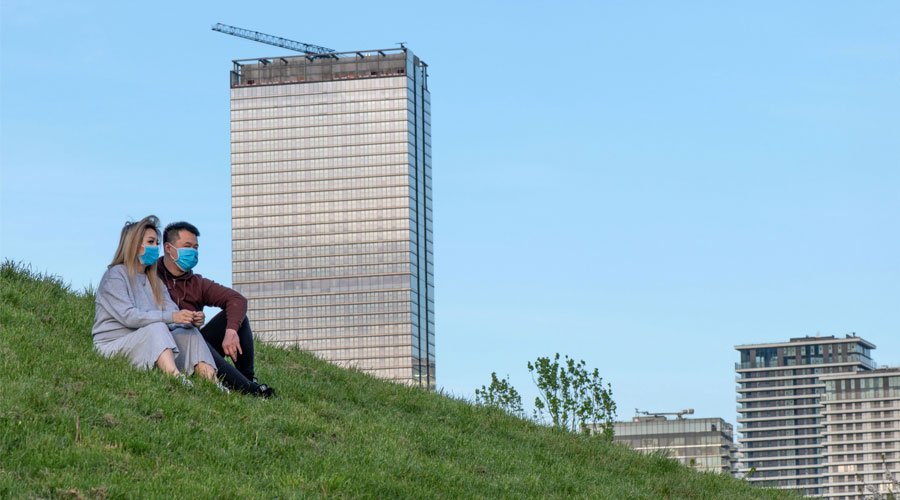Government interventions rather than meteorological factors primarily curb COVID-19 spread
18 March 2021 London School of Hygiene & Tropical Medicine London School of Hygiene & Tropical Medicine https://lshtm.ac.uk/themes/custom/lshtm/images/lshtm-logo-black.png
Weather and climate conditions should not be used to determine when to relax measures to halt the spread of COVID-19, according to a new World Meteorological Organization (WMO) report.
The WMO task team report on COVID-19 meteorological and air quality factors provides a comprehensive summary of COVID-19 seasonality and climate factors. It was written by a 16-member panel of experts in earth and medical sciences and public health.
The team found COVID-19 transmission in 2020 and early 2021 is influenced primarily by government interventions such as mask mandates and travel restrictions.
Dr Rachel Lowe, member of the WMO COVID-19 Task Team and Associate Professor at LSHTM, said:
“Based on the evidence so far, the link between weather and the transmission of COVID-19 is still unclear, partly because it has been very difficult to disentangle the tightening and relaxing of government interventions from changing seasons across the globe over the past year.
“As the northern hemisphere transitions to warmer months, meteorological conditions should not form the basis of COVID-19 decision-making at this time.”
The task team was established by WMO’s Research Board to provide a rapid summary of the state of knowledge regarding potential meteorological and air quality influences on COVID-19 transmission. Furthering our understanding of the impact of climate and temperature on COVID-19 is crucial, given the seasonality observed with other respiratory viruses.
Large quantities of contradictory papers and pre-prints on meteorological factors and COVID-19 have been published but until now there has been no comprehensive review of the evidence.
Dr Lowe said: “Current COVID-19 transmission is strongly linked to human behaviour, with clear reductions happening during lockdown and when social contact is minimised. Although respiratory diseases like influenza have been previously linked to weather, the reasons why are still unclear, and we cannot translate this easily to emerging viruses.”
The team modelled different meteorological scenarios using data from when the pandemic began to Jan 2021, to highlight relevant drivers for COVID-19, including demographics of affected populations, and more recently, new strains of the virus.
Dr Ben Zaitchik, Department of Earth & Planetary Sciences, Johns Hopkins University, Baltimore, USA and Task Team Co-chair, said: “At this stage, evidence does not support the use of meteorological and air quality factors as a basis for governments to relax their interventions aimed at reducing transmission. We saw waves of infection rise in warm seasons and warm regions in the first year of the pandemic, and there is no evidence that this couldn’t happen again in the coming year.”
Future work by the team will focus on the meteorological factors that influence COVID-19 as well as looking at the impact of air pollution on COVID-19 mortality rates.
The data gathered for the report included literature published by the first week of January 2021, so data on the transmission of new strains of COVID-19, or severity of infections caused by new strains, was not included. The authors also note that outdoor meteorology and air quality conditions and does not address details of indoor air circulation.
Publication:
World Meteorological Organisation COVID-19 Task Team. Review on Meteorological and Air Quality Factors Affecting the COVID-19 Pandemic.
Our postgraduate taught courses provide health practitioners, clinicians, policy-makers, scientists and recent graduates with a world-class qualification in public and global health.
If you are coming to LSHTM to study a distance learning programme (PG Cert, PG Dip, MSc or individual modules) starting in 2024, you may be eligible for a 5% discount on your tuition fees.
These fee reduction schemes are available for a limited time only.